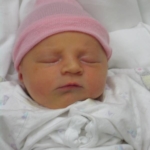Having a newborn child to the neonatal intensive care unit (NICU) is stressful to parents. It would be easy to imagine that in this environment, women may be more vulnerable to postpartum depression (PPD). A recent study assessed the incidence of PPD in a total of 131 mothers with infants admitted to the NICU.
The women were screened with the Edinburgh Postnatal Depression Scale (EPDS). Approximately 19.1% of the mothers experienced significant depressive symptoms, scoring 10 or above on the EPDS.
Depression during the current and previous pregnancies and problems with current delivery were the strongest predictors of PPD. In addition, having a child in the NICU for longer than 2 weeks also increased risk of developing PPD.
While this study indicates that women with babies admitted to the NICU are at increased risk for PPD, I was surprised that the rate of PPD in this population was only a little bit higher than what we observe in the general population (15%). I suspect this may be related to the emotional and parenting support parents receive while their child is in the NICU. (It may also be helpful that the mother’s sleep is less disrupted while her child is cared for in the NICU.)
I often hear from my patients that they experience the greatest stress when they leave the NICU and go home with their infant. In many cases, there are medical issues that persist beyond the baby’s stay in the NICU, and parents can feel tremendously overwhelmed by the demands of caring for a baby who appears to be so vulnerable. I would hypothesize that many women develop PPDafter their baby leaves the NICU.
This study indicates that in the NICU we should attempt to identify women with depressive symptoms and to provide support and treatment as needed. While this approach makes sense, other studies have indicated that women with PPD often face difficulties in accessing mental health care and finding competent providers in a timely fashion. Thus, if we screen for PPD, we have to make sure that we have a support network in place to provide the services that these women require while their babies are in the NICU but also after they leave.
Ruta Nonacs, MD PhD
Byatt N, Simas TA, Lundquist RS, et al. Strategies for improving perinatal depression treatment in North American outpatient obstetric settings. J Psychosom Obstet Gynaecol. 2012; 33(4): 143-61.
Vasa R, Eldeirawi K, Kuriakose VG, et al. Postpartum Depression in Mothers of Infants in Neonatal Intensive Care Unit: Risk Factors and Management Strategies. Am J Perinatol. 2013 Aug 5. [Epub ahead of print]








Leave A Comment